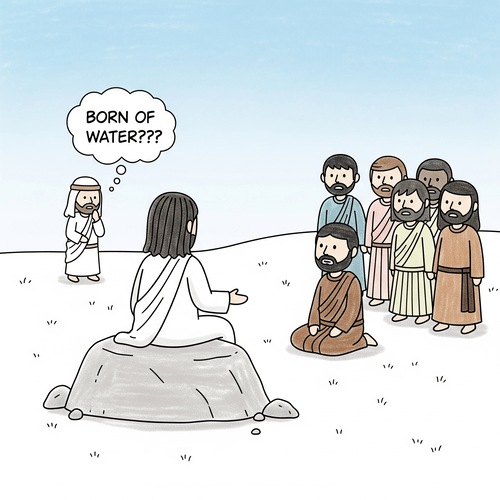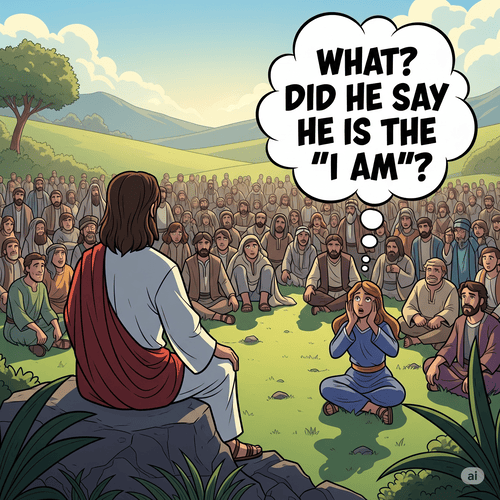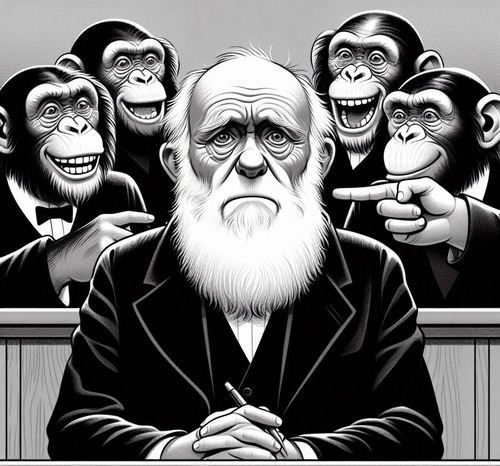Does the Multiverse Prove or Disprove God? A Creationist Perspective
Does the Multiverse Disprove God?
From Marvel’s multiverse adventures to serious scientific discourse, the concept of multiple universes has captured both popular imagination and scholarly debate. As Christians engage with modern scientific theories, an important question emerges: Does the existence of multiple universes—if they do exist—challenge or reinforce our arguments for the existence of God? Far from disproving God and creation, the multiverse hypothesis might actually reveal new depths of God’s infinite creativity and wisdom.
Understanding the Multiverse Hypothesis
The multiverse hypothesis suggests our universe isn’t alone but part of a vast ensemble of universes. Scientists propose several types of potential multiverses, from the relatively modest “bubble universes” that form in ever-expanding space to the mind-bending “mathematical multiverse” where every possible universe exists.
Modern physics, particularly string theory and inflation theory, has led some scientists to propose multiple universes naturally arise from fundamental physical laws. However, it’s crucial to remember these are still, let’s face it, not observed phenomena. The multiverse entered scientific discourse through attempts to explain quantum mechanics and has since expanded into cosmology and theoretical physics.
The Atheistic Argument
Proponents of atheistic interpretations of the multiverse often present it as an alternative to divine creation. Their core argument suggests that with an infinite number of universes, our life-supporting universe isn’t remarkable—it’s inevitable. They contend that fine-tuning arguments for God’s existence become irrelevant if every possible combination of physical constants exists somewhere in the multiverse.
The argument essentially states: “With enough rolls of the cosmic dice, our universe was bound to appear eventually. No Creator needed.” This perspective often accompanies the claim that multiple universes eliminate the need for a divine explanation of our universe’s remarkable fitness for life.
Does the Multiverse Disprove God?—The Creationist Response
However, this atheistic argument faces significant logical challenges. Even if multiple universes exist, their existence demands explanation. The presence of many universes doesn’t eliminate the need for a Creator—it magnifies it. Consider this: If finding one exquisitely designed watch suggests a watchmaker, finding an infinite collection of perfectly crafted watches would provide even stronger evidence of design.
The multiverse hypothesis doesn’t solve the ultimate question of existence—Why is there something rather than nothing? Whether we’re discussing one universe or many, we still face the fundamental question of origin and purpose. Moreover, the very laws that would allow multiple universes to exist require precise calibration too, pushing the design question up one notch, rather than eliminating it.
Scientific Challenges to Multiverse Theory
The multiverse hypothesis faces substantial scientific challenges as well. First and foremost is the issue of empirical evidence—by definition, other universes lie beyond our observable universe, making direct observation impossible. This raises serious questions about whether the multiverse hypothesis qualifies as science at all.
Many scientists, both religious and secular, criticise multiverse theory as unfalsifiable. Karl Popper’s criterion of falsifiability—that scientific theories must be testable and potentially provable false—appears impossible to apply to other universes we can never observe or interact with. This suggests the multiverse hypothesis might be more philosophical speculation than scientific theory.
Finding God in the Multiverse
Rather than threatening faith, the multiverse concept could deepen our appreciation of God’s creative power. The mathematical beauty and coherence found in theoretical physics, whether describing one universe or many, points to an intelligent mind behind reality. The order, rationality, and comprehensibility of the cosmos—even in its most complex manifestations—align perfectly with belief in a rational Creator.
If multiple universes exist, they would demonstrate God’s infinite creative capacity. Rather than diminishing God’s role, a multiverse would showcase divine creativity on an even grander scale than previously imagined. The complexity and elegance of laws that could generate multiple universes would provide even more evidence of supernatural intelligence.
Conclusion
The multiverse hypothesis, rather than challenging God’s existence, may offer new perspectives on His infinite nature and creative power. Whether our universe stands alone or exists alongside countless others, the fundamental questions of purpose, design, and ultimate causation remain. The elegance and rationality we observe in cosmology, far from disproving God, provide compelling evidence for divine intelligence operating at the deepest levels of reality.
In seeking to understand the cosmos, whether singular or multiple, we just cannot rule out the Divine Architect.
Does the Multiverse Disprove God?—Related FAQs
If multiple universes exist, could there be versions of Earth where the Fall never happened or where Jesus didn’t need to die for our sins? The multiverse hypothesis deals with physical variations in universes, not alternate spiritual histories. God’s redemptive plan through Christ is a spiritual reality that transcends physical dimensions, and the moral and spiritual nature of humanity’s relationship with God isn’t subject to physical universal constants. The Fall and Redemption are spiritual truths that exist independent of how many physical universes might exist.
- Does Genesis 1:1 (“In the beginning God created the heavens and the earth”) rule out the possibility of other universes? The Hebrew words used in Genesis 1:1 are broad enough to encompass all of physical reality, not just our observable universe. Just as “the heavens” includes galaxies unknown to ancient readers, it could potentially include other universes if they exist. The focus of Genesis is telling us WHO created everything, not providing an exhaustive list of WHAT was created.
- If God created multiple universes, why doesn’t the Bible mention them? The Bible’s primary purpose is to reveal God’s redemptive plan for humanity, not to serve as a comprehensive scientific textbook. Just as Scripture doesn’t mention galaxies, quarks, or DNA (though God created them all), it doesn’t need to address other universes to be completely true and authoritative for its intended purpose of revealing God’s nature and plan for humanity.
Could demons or fallen angels be from other universes? Scripture presents angels and demons as spiritual beings within God’s single creation, not physical beings from other universes. These spiritual entities operate in a spiritual realm that’s fundamentally different from physical universes, whether one or many. This question illustrates the importance of not conflating physical theories about multiple universes with spiritual realities described in Scripture.
- If infinite universes exist, does that mean there are infinite versions of God? God exists outside of and independent from all universes, whether one or many—He is transcendent and unique. Multiple universes would simply be different aspects of His creation, much like multiple paintings by the same artist don’t create multiple artists. God’s unity and uniqueness are fundamental attributes of His nature that wouldn’t be affected by the number of universes He chose to create.
Does the Multiverse Disprove God?—Our Related Posts
Editor's Pick

‘Bad’ Design: Flaw in Nature Or Flaw in Our Perspective?
When the Eiffel Tower was first proposed, critics called it a monstrous eyesore that would ruin Paris forever. Today, it’s [...]

The Problem of Divine Absence: How Do Believers Cope?
WHEN GOD SEEMS FAR: THE GREAT DISCONNECT Ever wondered why God seemed so close to Joseph in his Egyptian prison, [...]

Is ‘Gay Christian’ a Biblically Acceptable Identity to Have?
THE QUESTION OF IDENTITY IN BIBLICAL PERSPECTIVE The term “gay Christian” has become increasingly common in contemporary religious discourse, representing [...]

What Does ‘Born of Water’ in John 3:5 Mean?
THE REFORMED VIEW VS OTHER INTERPRETATIONS ”Jesus answered, ‘Truly, truly, I say to you, unless one is born of water [...]

The Lordship Salvation Controversy: What’s It All About?
Can someone be truly saved without making Jesus Christ their Lord? The question sits at the heart of one of [...]

1 John 5:6: How Do Water and Blood Reveal Jesus’ True Identity?
"This is he who came by water and blood—Jesus Christ; not by the water only but by the water and [...]

Is Jesus Yahweh? Answering Unitarian Objections
The question of whether Jesus Christ is truly God has divided Christians for centuries. While orthodox Christianity has consistently affirmed [...]

Matthew 3:11: What Is the Baptism of Fire?
When John the Baptist declared, “He will baptise you with the Holy Spirit and fire” (Matthew 3:11), his words carried [...]

From Rock to Stumbling Block: Why Jesus Called Peter Satan
In the span of just six verses (Matthew 16:13-28), Peter goes from receiving the highest praise from Jesus to getting [...]

Can Repentance be Real If We Struggle With Habitual Sin?
We’ve been there before. The weight of conviction sinks in as we realise we’ve fallen into the same sin. All [...]
SUPPORT US:
Feel the Holy Spirit's gentle nudge to partner with us?
Donate Online:
Account Name: TRUTHS TO DIE FOR FOUNDATION
Account Number: 10243565459
Bank IFSC: IDFB0043391
Bank Name: IDFC FIRST BANK






